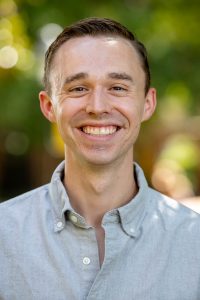Kenaston presents at Southeastern American Studies Association conference

Connor Kenaston
History professor Connor Kenaston recently presented his research at the 2025 Southeastern American Studies Association conference in New Orleans, Louisiana.
His paper, “Forgotten Frequencies: Network Religious Radio and the Rise of Tri-Faith America,” was part of a panel examining the foundations of American popular culture in the 1920s.
Kenaston’s paper explored how radio shaped American religious identity, focusing on NBC’s The Catholic Hour. Created in an era rife with nativism and Protestant nationalism, the program sought to demonstrate that Catholics could be both fully American and fully Catholic. However, Kenaston argued that NBC’s broadcasting rules forced Catholic leaders to make strategic compromises. These constraints shaped how they presented Catholicism—emphasizing its distinctiveness while carefully avoiding offense to Protestant and Jewish audiences. This balancing act helped pave the way for Americans during and after World War II to see Protestants, Catholics, and Jews as co-equal pillars of American religious life.
Yet, Kenaston also highlights the limitations of network radio’s religious pluralism. While network radio pried open the possibility of a more pluralistic nation, it sidelined other religious perspectives, including sometimes more radical and prophetic voices. Network religious radio also subtly reinforced white Protestant norms about what counted as “religion.”
Kenaston’s research offers insight into the enduring influence of how mass media has shaped—and continues to shape—how Americans think about the bonds that unite and divide them.
Tags: Connor Kenaston, faculty, faculty achievements, Faculty Scholarship, history
